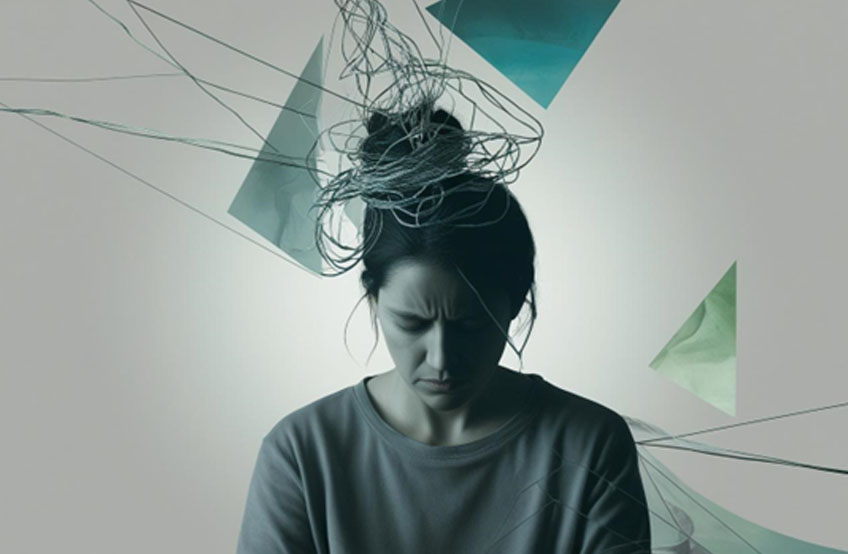
In today’s world, many of us rely on social media platforms such as Facebook, Twitter, Snapchat, YouTube, and Instagram to find and connect with each other. While each has its benefits, it’s important to remember that social media can never be a replacement for real-world human connection.
It requires in-person contact with others to trigger the hormones that alleviate stress and make you feel happier, healthier, and more positive. Ironically for a technology that’s designed to bring people closer together, spending too much time engaging with social media can actually make you feel more lonely and isolated—and exacerbate mental health problems such as anxiety and depression.
If you’re spending an excessive amount of time on social media and feelings of sadness, dissatisfaction, frustration, or loneliness are impacting your life, it may be time to re-examine your online habits and find a healthier balance.
Multiple studies have found a strong link between heavy social media and an increased risk for depression, anxiety, loneliness, self-harm, and even suicidal thoughts.
Here are 10 ways that social media could be negatively affecting your mental health without you even realizing.
1. Self-esteem
We all have our fair share of insecurities, some that we speak about openly and others that we prefer to keep to ourselves.
When we derive a sense of worth based on how we are doing relative to others, we place our happiness in a variable that is completely beyond our control
2. Human connection
As human beings, it’s so important for us to be able to communicate and forge personal connections with one another.
However, it can be hard to do so when we’re glued to rectangular screens, becoming more acquainted with our friends’ digital facades than their real-life personas.
However, comparing yourself to others on social media by stalking their aesthetically perfect Instagram photos or staying up to date with their relationship status on Facebook could do little to assuage your feelings of self-doubt.
3. Sleep
Having enough sleep is of paramount importance
However, many of us use our phones too soon before choosing the hit the bed, making it harder to doze off.
Getting worked up with anxiety or envy from what we see on social media keeps the brain on high alert, preventing us from falling asleep.
Plus, the light from our mobile device just inches from our face can suppress the release of melatonin, a hormone that helps us feel tired.
4. Attention span
It’s not just your subconscious brain that you need to worry about, but also the extent to which your brain is able to fully concentrate when you’re awake.
While it’s incredible to consider the amount of information readily available at our fingertips thanks to social media, it also means that people have become far more easily distracted.
5. Inadequacy about your life or appearance
Even if you know that images you’re viewing on social media are manipulated, they can still make you feel insecure about how you look or what’s going on in your own life. Similarly, we’re all aware that other people tend to share just the highlights of their lives, rarely the low points that everyone experiences. But that doesn’t lessen those feelings of envy and dissatisfaction when you’re scrolling through a friend’s airbrushed photos of their holiday or reading about their exciting new promotion at work.
6. Fear of missing out (FOMO)
Sites such as Facebook and Instagram seem to exacerbate feelings that others are having more fun or living better lives than you are. The idea that you’re missing out on certain things can impact your self-esteem, trigger anxiety, and fuel even greater social media use. FOMO can compel you to pick up your phone every few minutes to check for updates, or compulsively respond to each and every alert—even if that means taking risks while you’re driving, missing out on sleep at night, or prioritizing social media interaction over real world relationships.
7. Isolation
A study at the University of Pennsylvania found that high usage of Facebook, Snapchat, and Instagram increases rather decreases feelings of loneliness. Conversely, the study found that reducing social media usage can actually make you feel less lonely and isolated and improve your overall wellbeing.
8. Depression and anxiety
Human beings need face-to-face contact to be mentally healthy. Nothing reduces stress and boosts your mood faster or more effectively than eye-to-eye contact with someone who cares about you. The more you prioritize social media interaction over in-person relationships, the more you’re at risk for developing or exacerbating mood disorders such as anxiety and depression.
9. Cyberbullying
About 10 percent of teens report being bullied on social media and many other users are subjected to offensive comments. Social media platforms such as Twitter can be hotspots for spreading hurtful rumors, lies, and abuse that can leave lasting emotional scars.
10. Self-absorption
Sharing endless selfies and all your innermost thoughts on social media can create an unhealthy self-centeredness and distance you from real-life connections.
Becoming more conscious of the amount of time you spend scrolling through other people’s online profiles could help you focus more on yourself and boost your self-confidence.
We may not need to quit it completely, but limiting our time on social media considerably, and reconnecting with friends and family in real life, is definitely the way to go.




